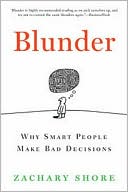Category Books
- Fiction Books & Literature
- Graphic Novels
- Horror
- Mystery & Crime
- Poetry
- Romance Books
- Science Fiction & Fantasy
- Thrillers
- Westerns
- Ages 0-2
- Ages 3-5
- Ages 6-8
- Ages 9-12
- Teens
- Children's Books
- African Americans
- Antiques & Collectibles
- Art, Architecture & Photography
- Bibles & Bible Studies
- Biography
- Business Books
- Christianity
- Computer Books & Technology Books
- Cookbooks, Food & Wine
- Crafts & Hobbies Books
- Education & Teaching
- Engineering
- Entertainment
- Foreign Languages
- Game Books
- Gay & Lesbian
- Health Books, Diet & Fitness Books
- History
- Home & Garden
- Humor Books
- Judaism & Judaica
- Law
- Medical Books
- New Age & Spirituality
- Nonfiction
- Parenting & Family
- Pets
- Philosophy
- Political Books & Current Events Books
- Psychology & Psychotherapy
- Reference
- Religion Books
- Science & Nature
- Self Improvement
- Sex & Relationships
- Social Sciences
- Sports & Adventure
- Study Guides & Test Prep
- Travel
- True Crime
- Weddings
- Women's Studies
Blunder: Why Smart People Make Bad Decisions »

Authors: Zachary Shore
ISBN-13: 9781596916432, ISBN-10: 1596916435
Format: Paperback
Publisher: Bloomsbury USA
Date Published: October 2009
Edition: (Non-applicable)
Author Biography: Zachary Shore
Zachary Shore is a professor of national security affairs at the Naval Postgraduate School and a senior fellow at Berkeley’s Institute of European Studies. The author of What Hitler Knew and Breeding Bin Ladens, he lives in Berkeley, California.
Book Synopsis
“Engaging…Teases out the cause and effect of seven [cognition] traps with witty stories of famous blunders…to teach the basis of good judgment. L ike all good historians he’s hoping we can avoid making the same mistake twice.”—O, The Oprah Magazine
For anyone whose best-laid plans have been foiled by faulty thinking, Blunder reveals how understanding seven simple traps—Exposure Anxiety, Causefusion, Flat View, Cure-Allism, I nfomania, Mirror Imaging, Static Cling—can make us all less apt to err in our daily lives.
Publishers Weekly
Shore (Breeding Bin Ladens), a professor of national security affairs at the Naval Postgraduate School, explains why smart people do dumb things in this glib guidebook that is more pop psychology than serious inquiry. According to the author, people blunder because they fall into "inflexible mind-sets formed from faulty reasoning"-or "cognition traps." Using examples drawn from history, wars, medicine, business and literature, Shore identifies seven common cognition traps such as "causefusion" ("confusing the causes of complex events"), "flatview" (black and white thinking) and "static cling" (an inability to accept change). Shore cites examples of various actors (individuals, corporations and even nations) stumbling into one trap or another with unfortunate results (e.g., a person will compound a blunder through different kinds of faulty reasoning). Shore points to "America's Iraq debacle" as a kind of perfect storm where "all of the cognition traps... combined to sabotage America's success." But Shore remains optimistic that society can learn to avoid cognition traps and inevitable blunders by following his prescription of cultivating mental flexibility, empathy, imagination, contrarianism and an open mind. Despite the clever wordplay, neat categories and accessible examples, Shore mostly recycles common sense in a fancy package. (Nov.)
Copyright © Reed Business Information, a division of Reed Elsevier Inc. All rights reserved.Table of Contents
Introduction Keeping Current 1
Chapter 1 Exposure Anxiety: The Fear of Being Seen as Weak 13
Chapter 2 Causefusion: Confusing the Causes of Complex Events 30
Chapter 3 Flatview: Seeing the "World in One Dimension 71
Chapter 4 Cure-allism: Believing That One Size Really Fits All 101
Chapter 5 Infomania: The Obsessive Relationship to Information 127
Chapter 6 Mirror Imaging: Thinking the Other Side Thinks Like Us 161
Chapter 7 Static Cling: Refusal to Accept a Changing World 183
Chapter 8 Cognition-Trapped in Iraq 201
Chapter 9 Working Toward Wisdom 216
Acknowledgments 233
Notes 237
Index 253
Subjects
 Psychology & Self-Help Humor
Psychology & Self-Help Humor  Stupidity -> Humor
Stupidity -> HumorNonfiction
 Psychology
Psychology  Clinical Psychology
Clinical PsychologyPsychology & Psychotherapy
 Clinical Psychology
Clinical Psychology  Psychotherapy
PsychotherapyPsychology & Psychotherapy
 Psychological Disorders
Psychological Disorders  Psychotherapy
PsychotherapyEntertainment
 Humor Books
Humor Books  Psychology & Self-Help Humor
Psychology & Self-Help HumorMedical Books
 Psychology & Psychotherapy
Psychology & Psychotherapy  Clinical Psychology
Clinical PsychologyMedical Books
 Psychology & Psychotherapy
Psychology & Psychotherapy  Psychological Disorders
Psychological DisordersNonfiction
 Humor
Humor  Psychology & Self-Help Humor
Psychology & Self-Help Humor
